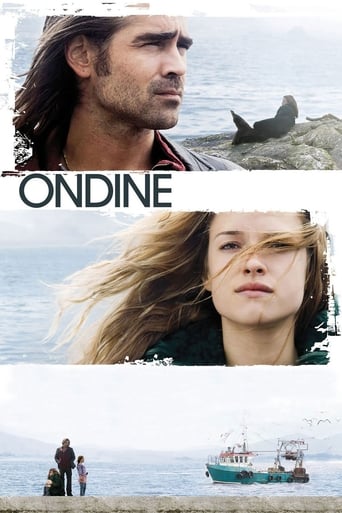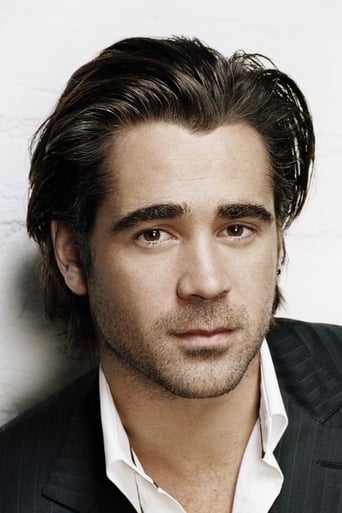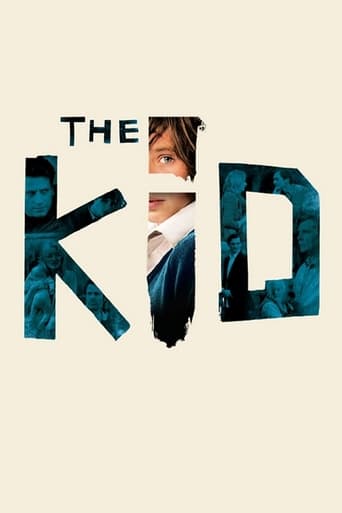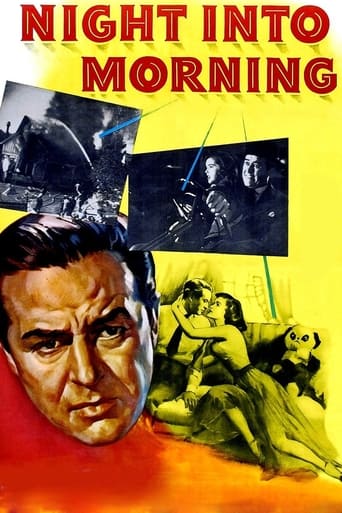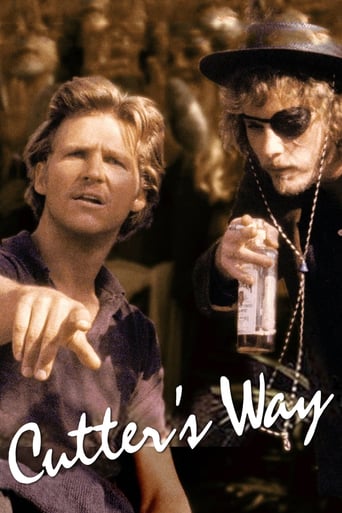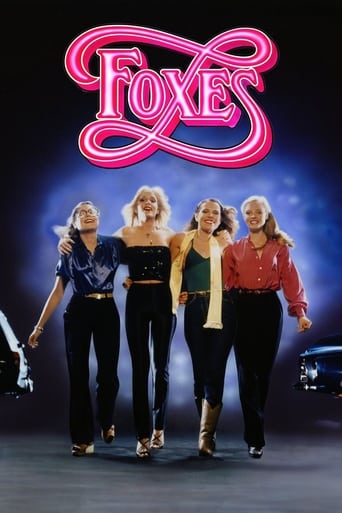Ondine (2009)
On the coast of Cork, Syracuse is a divorced fisherman who has stopped drinking. His precocious daughter Annie has failing kidneys. One day, he finds a nearly-drowned young woman in his net; she calls herself Ondine and wants no one to see her. He puts her up in an isolated cottage that was his mother's. Annie discovers Ondine's presence and believes she is a selkie, a seal that turns human while on land. Syracuse is afraid to hope again.
Watch Trailer
Cast


Similar titles
Reviews
the audience applauded
Nice effects though.
This is a tender, generous movie that likes its characters and presents them as real people, full of flaws and strengths.
The tone of this movie is interesting -- the stakes are both dramatic and high, but it's balanced with a lot of fun, tongue and cheek dialogue.
"The truth is not what you know. It's what you believe."This is a movie about a myth that materializes in reality, hope that finds its way through despair. A movie that will restore your faith in the imaginary and will leave you believing that we are re-living our favorite childhood fairy tales everyday but with different details. This is a movie about hope and happiness; hope that favors only the strong, and happiness that needs courage, persistence and belief. And as the priest tells Syracuse, it is always easier to fall into misery because it does not require much effort. It's happiness that needs working at. Everyday, unlimited opportunities of happiness knock on our door but we foolishly waste them or abandon them halfway because of our crippling sense of reality, cowardice, or lack of faith.Ondine is about a former alcoholic Irish fisherman, Syracuse, who fishes out of the water a woman whom his sick daughter believes to be a Silkie, a mythological creature with magical powers that lives as a seal in the water and sheds off its skin on land. Throughout his journey to uncover the true identity of the woman, to know whether she belongs to the real or the imaginary world, the fisherman (played well enough by Colin Farrell) discovers what it takes to deserve happiness.Alicja Bachelda was beautiful as Ondine. Her body and facial features truly give you the feeling that she belongs to a different world. The film is visually beautiful as well, except for a few extremely dim lit scenes which I believe were done so on purpose to juxtapose the gruesomely 'real' with the supposedly 'imaginary.'
"That's what I deal with—that meeting place between fairy tale and real life." - Neil Jordan Neil Jordan directs "The Good Thief". The film stars Nick Nolte as Bob, an ex convict, addict, thief and full time drunk. Speaking in slurred speech and bumbling about Southern France like a grizzly bear with a hangover, Bob spends most of his time doing good deeds for down on their luck women, taking young thieves under his wing or chatting to local police, most of whom enjoy his company despite his criminal past. He's quite literally a good thief, liked by all. The film was based on Melville's "Bob The Gambler", an influential "heist movie". Jordan's film is faithful to Melville's, whilst also staking out its own style and story.Like most of Jordan's films ("Company of Wolves", "Mona Lisa" etc), "Thief" attempts to collide a gritty crime-and-drugs plot with fairytale tropes. Nolte's part noir knight, part alcoholic on a downward slope to hell. When he attempts to pull off a dramatic casino heist, we're left at the edge of our seats, anxious to know whether fantasy wins out over the grunge. But the joke of the movie – the film sets up several possible resolutions then ends with a fairytale deus-ex machina - is in Jordan's delight in forcing us to recognise the romanticism in filth, and the grungy, seedy side of fairy tales. Noir/crime is largely a fantasy, and romantic idealism always has its sleazy flip-side.Beyond this, the film is preoccupied with doubles, replicas, doppelgangers and copies. There's a real heist and a fake heist, several twinned characters, authentics and surrogates, real paintings and fake copies, real rooms and fake mock-ups, double-crimes, double-bluffs, double crosses, two versions of every story and Jordan's usual fondness for transsexuals (muscular men with boobs and/or effeminate men) or those who undergo sex change operations, all of which again contribute to the blurring of all lines between original and copy. The germ of originality is always moving, just as Bob himself continually seems to rely on reinvention. While Melville's "Bob" was largely silent, stoic, and modelled on Sterling Hayden's role in "Asphalt Jungle", Jordan's Bob is both a fake and aware that he is a fake, continually recreating his past in order to get out of whatever fix he finds himself in. He also talks incessantly about thievery, numbers, probability theory, gambling, art etc, and idolises Pablo Picasso, who he regards, perversely, as the best thief that who lived. His prized possession is itself a Picasso, which he claims he won during a bet with the master."A film about remaking, reinvention, about the interplay between fakes and originals, became interesting to me," Jordan says, and in a way his film almost plays like a treatise on remakes. He even goes so far as to have Melville's heist literally play out as a "fake heist" within the film, which is used to distract the authorities, and audience, from the "real heist". This "real heist" then itself turns out to be a fake. The way the old, new and newer vie for attention, or even survival, is itself embodied by the cast, who like Bob (and Jordan) are all old, haggard and on the verge of retirement - a French detective Inspector, played warmly by Tcheky Karyo, is Bob's closest companion - or young, cocky and hungry for mischief. Bob survives, like Jordan and his film, because he knows how to adapt. Jordan acknowledges this autobiographical quality: "Bob eventually solves the problems inherent in the idea of a remake. He likes copies, replays, versions of versions, feints, old hands played in different ways. Even the Picasso he owns is revealed to be a double of the original, a fake. It's a good fake, though, Bob says. Painted by Keating, one of the truly great fakers." Today Paul Keatings are celebrated and sell for millions.Like Melville's film, indeed like all noirs, "Thief" is preoccupied with luck and a sort of existential indeterminism. Bob lives by the dice, but secretly dreams of the impossibly complicated heist, planned to aesthetically pleasing perfection. His artfully constructed plot fails, of course, but he is nevertheless rescued by a moment of cosmic luck (a reversal of "The Killing's" climax, again with heist maestro Sterling Hayden, released the same year as Melville's film).Not as good as "Thief" is Jordan's "Ondine", which stars Colin Farrell as an Irish fisherman who, like Bob, is a former drunk who finds himself plucking a woman, his own personal lady luck, out of darkness. He's convinced she's a mermaid and believes she can alter fortunes. Fairy tale tropes – a fisherman's love for and dependence upon a magical woman, and vice versa – and grungy, crime tropes then collide, Jordan revealing that the woman is really a drug mule, is evading gangsters and so forth. The "mermaid's" magical powers, her ability to control fate, is then revealed to be a sham. Events in the film which we perceived to be "magically" preordained are then revealed to be pure chance. This echoes the climax of "The Good Thief" in multiple ways. "Ondine" then ends with the couple living happily ever after despite a complete breakdown of their and our preconceptions; the girl isn't a magical, fairytale princess, but she's princessly despite her foibles, the fisherman isn't a hero, but is heroic despite his flaws. In each of these films, the realistic basis allows for the fairytale, and we're asked to recognise that fairy tales can't exist without something sleazy to be rescued from.Aesthetically, both films are special; hyper-moody, sensual, lots of night skies, eye-popping lights, or in the case of "Ondine", atmospheric Irish coastal towns, cold greys and cosy wool sweaters. "Thief" utilises odd jump-cuts, a nod to the French New Wave. Both films rely on mood, tone and place to make up for their weaknesses.7.9/10 - Worth one viewing.
old tale. and its new pieces. a film about heart of solitude, force of myth, beauty of faith. and love as arena of freedom. mystery, legend, the image of a child about a woman, a fisherman with many problems and a kind of spell. a not special movie with science to give crumbs of delicate emotions and to make a legend more profound. not very right in details but exercise of good art to create emotion. and nice occasion to understand the limits of reality as fruit of dream. a interesting surprise - role of Colin Farell. a smart way to sustain drawing of character - dialogs with the priest and circle of past. delicate solution to create a gray world with fragile borders. inspired music and images. a good movie. not extraordinary. just beautiful. like each slice of life.
The colors of the water, sky, and coastline are infusing. The storyline very nicely captures the greater meaning people seek in the initial stage of love affair and then very abruptly cuts into the reality of it. It pertained to the necessity of acceptance for continuity and/or to the finale for the lack of it. Personally, I didn't see the girl as "the skinny wanna-be lingerie model" as some have criticized previously, but quiet contrary- she played her part of NETHER-BEING well! The lovers were portrayed as they almost always traditionally are- in a need to save one another, to help one another and they were matched in terms of their particular needs. Both key characters' compassion for life, despite their vices or imperfections, shows in their genuine affection towards the little girl, as well as in their regard for and reliance on little girl's psychological strength.

